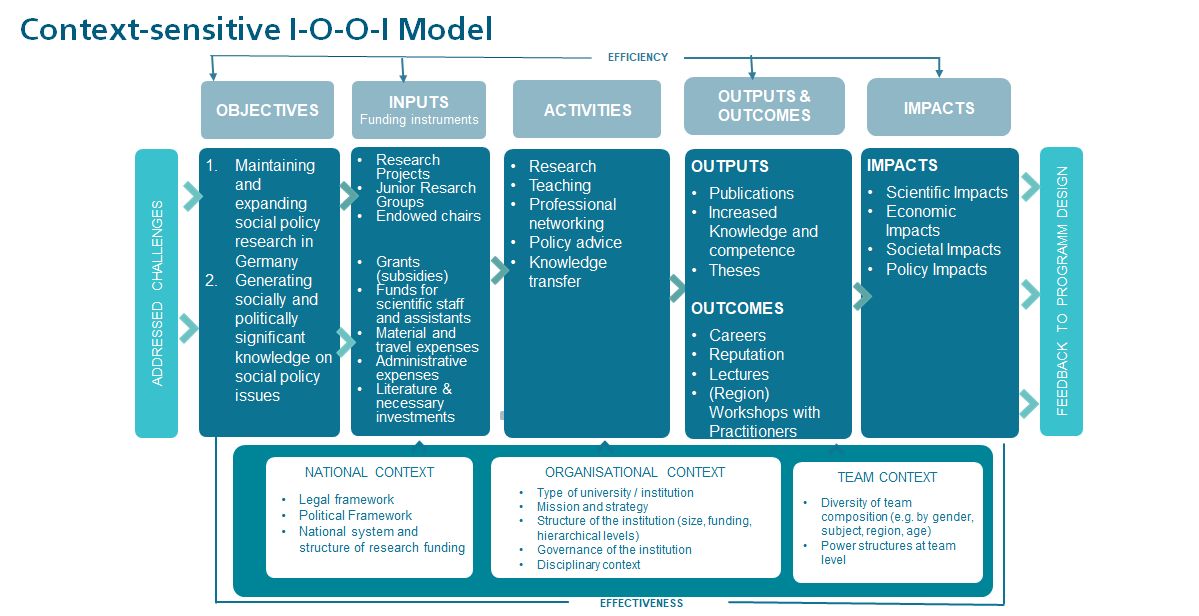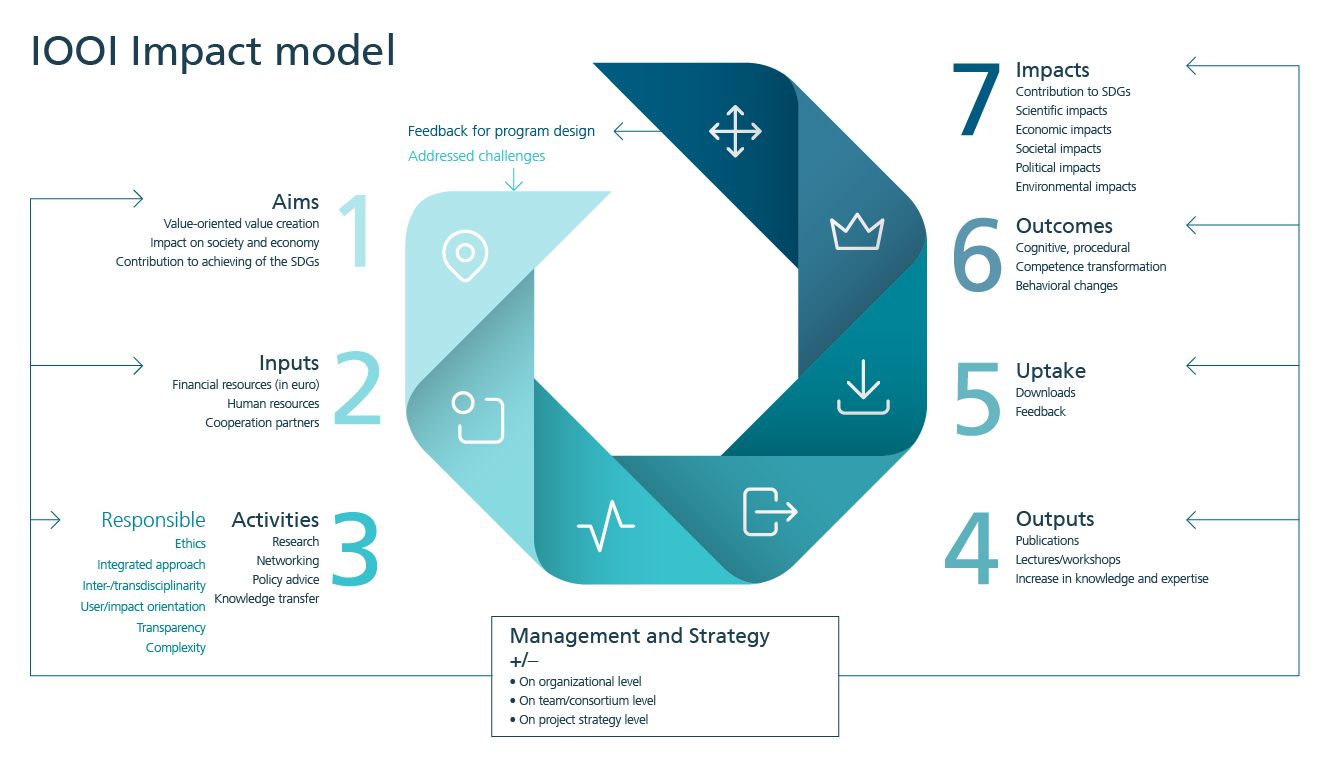The design and implementation of evaluations and impact analyses is part of the core portfolio of the Department of Policy and Society (P). The entire spectrum of evaluation types is used: In addition to estimates of the expected effects of a funding measure (ex ante) or the final evaluation at the end of a funding measure (summative / ex post), there are evaluations of the start phase of a measure, interim evaluations after a few years of program duration as well as accompanying evaluations with a formative character. Evaluations can include short, medium and long-term impact analyses. We also carry out portfolio evaluations of entire bundles of measures in a thematic area, a funding body or a region, although the latter are still relatively rare in Germany. The department P also has a prominent position in the evaluation and impact analysis of regulation and standards.
The subject of the department's evaluations are funding measures in the field of research, technology and innovation policy and the research and innovation projects funded by them. We also evaluate networks (clusters, competence centers, research alliances, etc.) and, increasingly, funding bodies, research institutions and research infrastructures.
In addition, the department P has recently stepped up its activities to establish impact-oriented monitoring systems, including the development of customized indicators for the strategic monitoring of funding activities.
Our evaluations are based on a mix of methods consisting of quantitative and qualitative, reactive and non-reactive approaches. Depending on the object of investigation, primary data collection such as online surveys or expert interviews are combined with secondary data analysis or interactive formats such as stakeholder workshops and focus groups. Text analytical methods and software-supported web research are also increasingly being used.

